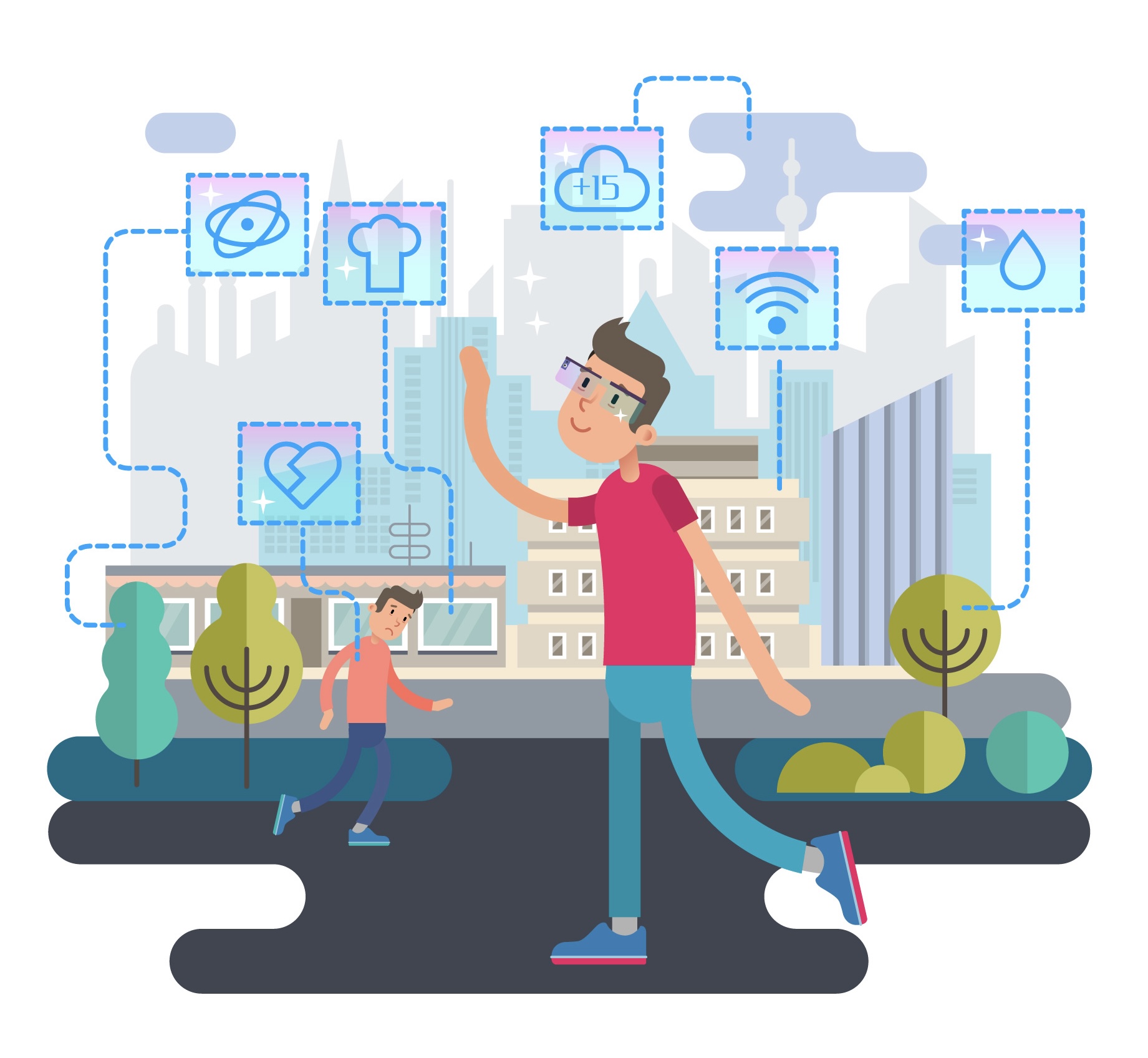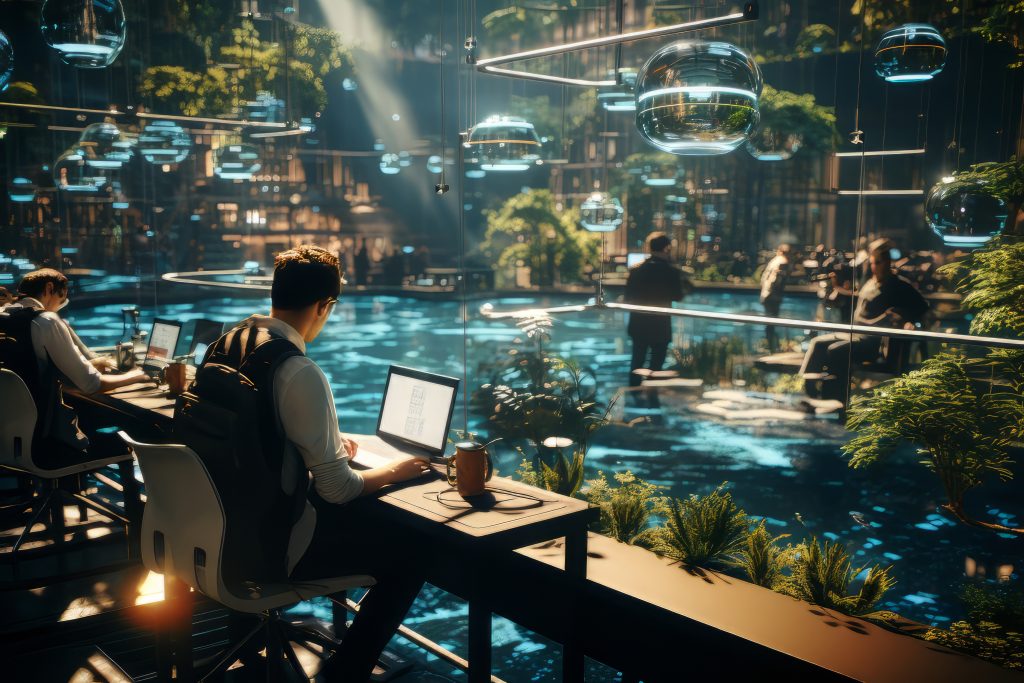
The Role of Technology in Leisure Business Development
The management of the leisure business in Indonesia continues to grow rapidly, in line with the increasing enthusiasm of the public for tourism and entertainment. In facing this growth, technological innovation plays a central role in creating increasingly superior customer experiences. Digital transformation has driven significant changes in the management of the recreation industry, from operational efficiency to service quality improvement. Technology provides opportunities for business players to design more effective marketing strategies, manage businesses more efficiently, and offer interactive and personalized tourism experiences. From online reservation systems to the integration of virtual reality technology, various innovations have now become an inseparable part of the recreational industry ecosystem. Responding to these needs, the Bachelor’s Degree Program in Recreation Business Management at Telkom University is designed with an innovative and industry-based curriculum, aimed at equipping students with relevant skills and insights to face future challenges.
The utilization of technology in the leisure business not only increases operational efficiency but also provides deeper insights into tourist preferences. Through increasingly sophisticated data analysis, business players can identify the latest tourism trends, adjust ticket prices based on demand, and present more personalized services according to customer needs. In addition, technology makes it easier for tourists to access information about tourist destinations, such as available facilities, ticket prices, and recommendations for activities that can be done.
Technological developments have also changed the way tourist destinations communicate and interact with visitors through social media and digital platforms. With digital-based marketing strategies, business players can reach more prospective tourists, build loyal customer communities, and obtain direct feedback. Promotional campaigns utilizing platforms such as Instagram, TikTok, and YouTube provide wide exposure and can attract more tourists to various destinations. In the Bachelor’s Degree Program in Leisure Business Management, students will learn digital marketing strategies based on technology to build competitive and highly competitive recreation businesses.
With such rapid technological development, the recreation business sector in Indonesia has great potential to continue progressing. The application of technology not only increases operational efficiency but also creates tourism experiences that are more comfortable, engaging, and innovative for visitors. Therefore, adapting to the latest technological trends becomes a strategic step for business players to remain competitive and provide the best service to customers. The Bachelor’s Degree Program in Recreation Business Management at Telkom University is present as a solution for those who want to master technology-based recreation business management strategies, so they are ready to face the challenges and opportunities in this ever-growing industry.

1. Digitalization in Reservation and Payment Systems in Recreation Business Management
One of the most significant impacts of technology is the digitalization of reservation and payment systems. With the presence of online ticket booking platforms, customers can easily reserve tickets for their favorite recreational places without having to visit the location in person. This helps reduce queues, speed up entry processes, and enhance the overall customer experience.
Digital payment systems such as e-wallets, QR codes, and mobile banking also simplify transactions, increase operational efficiency, and reduce long waiting lines. This technology also supports customer data management, enabling businesses to develop data-driven marketing strategies based on consumer behavior analysis.
2. Utilization of Augmented Reality (AR) and Virtual Reality (VR)
AR and VR technologies are increasingly used in the recreation industry to create more engaging experiences. For example, amusement parks can present VR-based rides that offer extraordinary sensations to visitors. Meanwhile, AR is often used in museums or educational tourist sites to provide interactive experiences for visitors. This technology can also be applied in digital tour guides that help visitors gain in-depth information without needing direct assistance from a guide.
3. Digital Marketing and Social Media
The development of social media has changed the way recreation business management conducts marketing. Platforms such as Instagram, TikTok, Facebook, and YouTube have become key tools for digital promotion through attractive visual content. Additionally, data-driven marketing using Artificial Intelligence (AI) allows businesses to target more specific audiences, increasing the effectiveness of marketing campaigns.
Digital marketing strategies in recreation businesses include Search Engine Optimization (SEO), Pay-Per-Click (PPC) advertising, influencer marketing, and content marketing. Through this approach, recreation businesses can increase online visibility, reach more potential tourists, and build strong brand awareness.
4. IoT and Smart Tourism
The Internet of Things (IoT) has brought major changes to the recreation business. Many tourist destinations now apply the smart tourism concept by utilizing sensors and IoT devices to enhance visitor experiences. For example, the use of automatic queue sensors in amusement parks or smart lighting systems that can adjust to environmental conditions in real-time.
Moreover, IoT is also applied in the security systems of recreational areas. Technologies such as AI-based surveillance cameras can automatically detect emergency situations and send alerts to security officers, thereby providing a sense of safety for visitors.
5. Mobile Applications for Easy Access
Mobile applications are increasingly becoming effective solutions in facilitating access to recreational business services. These apps provide various features such as online ticket booking, tourist guides, interactive maps, and customer loyalty programs. With push notification systems, businesses can also deliver the latest information about promotions or special events at their recreational venues.
6. Data Management and AI for More Personalized Services
Artificial Intelligence (AI) is now widely used, especially in managing customer data. AI can help provide recommendations for tourist destinations based on customers’ visit history. Additionally, AI-powered chatbots are increasingly used to serve customers automatically, answer questions, and provide information quickly and accurately.
7. Technology-Based Security and Surveillance
Security is a crucial factor in the recreation business. Modern technology enables more advanced surveillance systems, such as AI-based CCTV that can detect suspicious activities in real-time. Furthermore, facial recognition technology is starting to be implemented in some recreational areas to enhance security and accelerate the entry process for visitors.
Technology has become a key element in the development of the leisure business in Indonesia. With the growing public demand for tourism and entertainment, the application of technology in various aspects of the recreation business has become a necessity to stay competitive in the digital era.
The implementation of technology in digitalizing reservation and payment systems, the use of AR and VR, digital marketing strategies through social media, the utilization of IoT in smart tourism, mobile app development, AI for customer data management, and technology-based security systems has brought significant transformation to this industry.
With technology, leisure business can create high-quality services, increase competitiveness, and offer tourism experiences that are more engaging, safe, and memorable for customers. If managed properly, technology-based innovations in the recreation business will not only bring financial benefits but also contribute to the overall growth of the tourism and entertainment industries in Indonesia.
Campus Address and Contact
Campus Address: Jl. Telekomunikasi No. 1, Bojongsoang, Bandung
Website: https://blm.telkomuniversity.ac.id/
Email: leisuremanagement@telkomuniversity.ac.id
Don’t miss this golden opportunity! Enroll now at Telkom University and start your journey towards a successful career in the modern recreation industry!
Tags : Bachelor’s Degree in Recreation Business Management | Business Management | Recreation Business Management Telkom University

